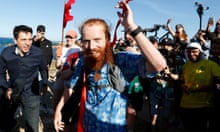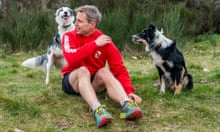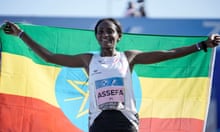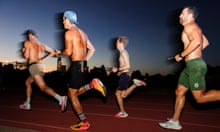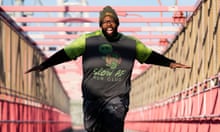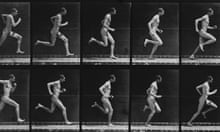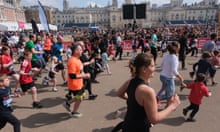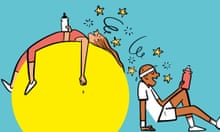In early 2018, I was training for the London Marathon – the first and only marathon I’ll ever run in my life. I had treated myself to an expensive fitness watch that tracked my time, pace, splits – every piece of information I could ever wish to know about what I had just endured.
At the end of my final training run – a gruelling 21 miles (34km) during which I got lost on Wandsworth Common and had a lovely little cry on the bus afterwards – I threw myself down on the floor the moment I got home, only to see my watch had failed me. Twenty-one miles briefly flashed on the screen before it went blank and disappeared for ever.
Instead of feeling proud of myself for the phenomenal achievement of running for what I believe in athletics is known as “fucking ages”, I screamed in anguish because there was no record of it. My aching muscles, my salt-crusted lips that tasted of sweat and Jelly Babies, the increasingly disgusting blisters on my feet – it all meant nothing to me. I may as well not have done it.
That tragic image of me sobbing while choking down a conciliatory Cornetto on my living room floor pretty much sums up my relationship with exercise tracking technology.
I’d like to say at this point that I know running apps are brilliant for some people. It can be a total joy to watch your stats change as you get stronger and faster. I once got a kick out of it too, but at some point it became a stick I used to punish myself. I would watch my pace (slow, always slow), compare it with other people’s, admonish myself for not doing that extra mile, or for not doing it 30 seconds faster like I had last time. I would run for five miles, get home and feel disappointed in myself for not doing six.
I never really recognised exercise tracking as a problem, because I was so used to tracking and logging my life. Things I have tracked include but are not limited to: calories, my weight, my sleep, steps, my speed, my heart rate. It seemed to me that tracking was the route to self-improvement, and the point was to improve, wasn’t it? The point was to be better.
In the past year, the concept of “being better” has taken on a different meaning. My mental health took a spectacular nosedive, and things that were once easy and I was very good at, such as brushing my teeth, washing my clothes and going outside became unimaginably difficult. Being better stopped meaning getting faster, stronger, leaner, thinner, more impressive. It meant taking care of myself in the most basic sense, feeling some joy in a day, remembering to take my meds, remembering that everything is temporary.
Once I started being better, I reflected on what about my life made me happy and what did not; on when I felt peaceful and when I did not. And so I stopped tracking my runs. I simply deleted years’ worth of data that was once very important to me and now meant nothing. Years of personal bests and personal worsts and targets and goals and achievements and failures. And once it was gone, what was left was me and a pair of running shoes and miles and miles of trying to clear the fog in my brain.
What has become very clear to me since I quit tracking my runs is that I genuinely love doing them. I run around my local park with a silly little smile on my face, I love it so much. But I do not love running quickly. I hate it, in fact. I do not love targets. I do not like races. I do not want to be pushed to be faster by other people or win a medal. I’m sorry to say to all the enthusiasts that I do not even like parkrun. I like to run alone accompanied by a playlist that will never see the light of day.
Things I notice about my runs now include: how my legs feel and how my mind feels afterwards (clear and focused). I notice how many flies are in my mouth, dogs, the smell of the cow parsley along the canal and the sunshine (OK, wind and rain) on my face.
I notice with interest how some days a 20-minute jog around the park feels like a marathon and how on others I want to go for miles and miles, my legs springy and filled with what feels like boundless energy. I notice how neither one is better or worse than the other, how the guilt has disappeared.
I am better. Or sometimes I am worse. But either way I’m slowly plodding along, and that’s good enough.
Laura Kay is a former Guardian journalist and the author of three novels, including The Split, which is about running


